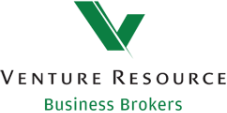Objectives
|
Collect Information
|
Financial Presentation
|
|
We educate ourselves on your needs and objectives. We discuss with you all options which may include: sell and retire, sell and remain with the company, take on a partner, capital infusion, etc. Thinking this through in advance will help focus the efforts of all involved.
|
We help you gather the appropriate information on all aspects of your business. Proper preparation is the crucial first step in marketing and establishing the confidence of a buyer. Accurate information will increase a buyer's level of interest.
|
Financial statements are prepared for tax purposes. However, recast financial statements more accurately reflect your company's true performance. We help buyers accurately interpret recast financial statements. Recasting adjusts for owner's salary, fringe benefits, one-time, non-recurring expenses, non-applicable expenses, and more.
|
Business Valuation
|
Corporate Presentation
|
Identify Buyers
|
|
Determining the fair market value of your business is an involved procedure, which takes many variables into account. Proper consideration must be given to your Company's strengths, assets, historical financial performance and projections, along with the many intangibles inherent in your Company. Purchase price comparisons should be made with like companies that have sold within your industry. By determining the highest price a fully informed buyer is willing to pay for your Company, you will avoid the risk of losing a timely sale by overpricing your Company, or "leaving money on the table" by undervaluing your business.
|
The business must be properly packaged with all applicable records and facts organized and documented. This ensures presentation in its most favorable light, while providing the acquirer with a concrete document to follow and review. This package educates buyers on the many intangibles inherent in your Company, hence raising the perceived value to the acquirer. These intangibles include name recognition, market niche, vendor relationships, operation and production systems, distribution channels, customer loyalty, trained and skilled employees, and many more.
|
Determine your strategy for bringing the Company to market. What type of buyer will perceive the greatest value? What synergies are in your business related to other companies? Identifying the "right" acquirer for your business can significantly impact its valuation.
|
|
Identify and prepare to address issues such as leases, regulations, licensing, key employees, or other concerns that apply to your specific situation.
Failure to address these issues early in the process may lead to the loss of qualified buyers and months of wasted activity. |
Determine the most likely type of buyer and how to best market the business, while maintaining complete confidentiality. There are a number of different marketing strategies available, which will provide the necessary exposure while maintaining strict confidentiality. There are steps you should take to guard against your competitors, employees, vendors and customers ever finding out about the pending sale of your business.
|
Pre-screen potential buyers regarding their financial capabilities, interest level, management skills, and other factors in order to estimate their ability to complete the transaction.
Confidentiality with any interested buyers will be maintained throughout the process. |
|
Provide the potential buyer with the opportunity to visit your facility. Generally there are multiple site visits. This is a good forum for the buyer and seller to develop a favorable rapport.
|
Upon a "meeting of the minds" as to the key transaction issues, a written Offer to Purchase, or occasionally a Letter of Intent, should outline the purchase price, terms, conditions, and any contingencies. Proper compliance with this step can save thousands of dollars in legal expenses.
|















